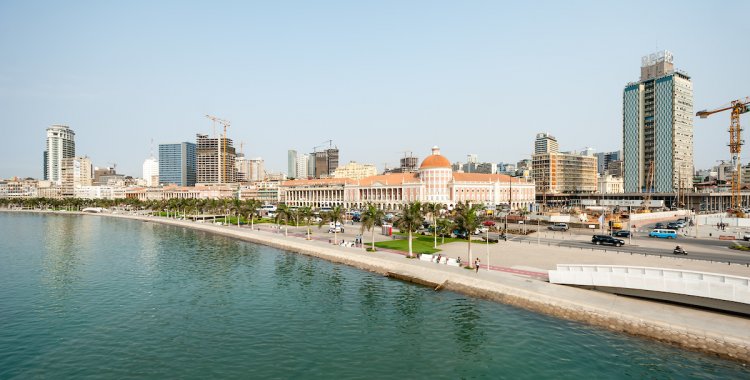"Nigeria and Angola are expected to grow 2.9 percent and 1.3 percent, respectively, due to lower international prices and because of pressures affecting oil and non-oil activity", write World Bank economists in the Pulsar report of Africa, released this Wednesday in Washington, on the eve of the Annual Meetings of the World Bank and the International Monetary Fund (IMF), which will take place next week in Marrakesh.
"The increase in conflict and violence in the region weighs on economic activity, and this growing fragility could be exacerbated by climate shocks", the report also adds, which predicts that South Africa, the most industrialized economy in sub-Saharan Africa, grow just 0.5 percent this year.
In April, the World Bank predicted that Angola's economy would grow 2.6 percent this year and stabilize at around 3.1 percent by 2025, after growth of 1.1 percent in 2021, when it emerged from recession, and 3.5 percent last year.
In its report on Africa, the World Bank predicts a slowdown to 2.5 percent this year in the economy of the sub-Saharan region, and warned of the danger of a "lost decade".
"Increasing instability, weak growth in the region's largest economies and ongoing uncertainty in the global economy are harming the region's growth prospects," write World Bank economists in the Africa Pulsar report.
"In 'per capita' terms, growth in sub-Saharan Africa has not increased since 2015; in fact, the region is expected to contract at an average annual per capita rate of 0.1 percent between 2015 and 2025, potentially creating a lost decade of growth, following the abrupt drop in the price of raw materials in 2014 and 2015", adds the document released biennially by the World Bank.
To avoid this lost decade, economists from the largest multilateral development bank argue that the region must "urgently achieve stability, increase growth and create jobs", pointing out several reforms that can help with these objectives, starting with the creation of jobs, envisaged as fundamental to sustaining the economic development of the region that encompasses Portuguese-speaking Angola, Cape Verde, Guinea-Bissau, Equatorial Guinea, São Tomé and Príncipe and Mozambique.
Despite weak economic growth and the gap between population growth and job creation, the region will see inflation slow down, from 9.3 percent last year to 7.3 percent this year, with budgets to be more balanced in African countries that are focusing on prudent and coordinated macroeconomic policies.
"In 2023, the East African Community is expected to grow 4.9 percent, while the West African Economic and Monetary Union (UEMOA, which includes Guinea-Bissau) is expected to grow 5.1 percent, but over-indebtedness ['debt distress', in the original in English] remains widespread, with, in June, 21 countries at high risk of external over-indebtedness or already in over-indebtedness", the report also points out.







